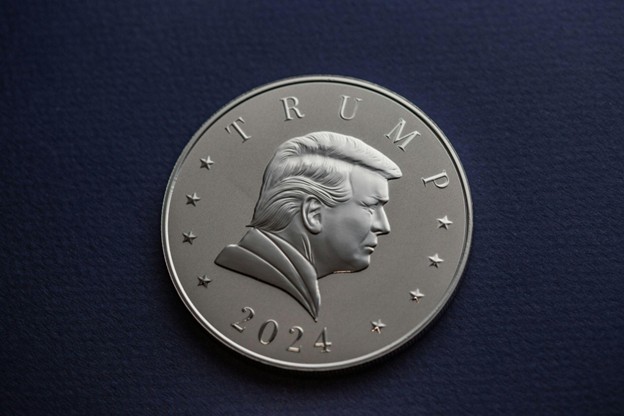$TRUMP Coin Controversy
When the sitting President of the United States launches a meme coin, crypto exchanges trip over themselves to list it in record time. It is a warning siren for investor protection, market ethics, and the already fragile credibility of the crypto industry.
Welcome to the $TRUMP coin saga: a political meme token that rocketed to $75 before crashing to $9, drained billions from unsuspecting wallets, and exposed just how easily even the biggest exchanges can toss their vetting rules out the window when celebrity and power are on the line.
Eight of the ten largest crypto exchanges listed $TRUMP within 48 hours. On average, those same exchanges take 129 days to list other meme coins like Pepe, Bonk, or dogwifhat. That’s not a coincidence. That’s not just “market momentum.” That’s raw, unfiltered political influence.
Coinbase, the biggest U.S. exchange, claims it didn’t skip steps. But when your compliance team suddenly becomes a 24/7 express lane because the president tweeted a meme coin, something’s broken. And it’s not just the vetting process. It’s the entire notion that crypto is a decentralized, rules-based system immune to top-down manipulation.
Honestly, you don’t say no to the president, especially when your industry is under federal scrutiny and your company’s future could hinge on regulatory favor.
According to trading data, 45 wallets, likely insiders and early whales, pocketed $1.2 billion in profits. Meanwhile, over 700,000 wallets lost a collective $4.3 billion. That’s not just a meme coin collapse; that’s a classic pump-and-dump in political cosplay.
Yes, meme coins are inherently risky. Yes, buyers are supposed to do their due diligence. But when mainstream platforms rush to give a meme coin legitimacy, despite knowing 80% of its supply is controlled by Trump and his allies, they’re not just riding hype. They’re actively facilitating a wealth transfer from everyday traders to connected insiders.
The White House says there are “no conflicts of interest” because Trump placed his assets in a family trust. That might pass legal muster, but in reality? It’s like saying a casino owner isn’t involved in betting because he’s watching from the VIP booth.
Let’s be crystal clear: the president launches a crypto token, that token generates $320 million in early fees, regulators back off, enforcement stalls, and exchanges profit handsomely, and retail investors are left holding the bag.
If this isn’t a textbook case of regulatory capture in a decentralized disguise, what is?
Multiple exchanges admitted they were uneasy with the 80% insider ownership, but listed the coin anyway due to “strong demand.” That’s like a food company knowingly skipping safety checks because customers were excited about a new spicy flavor.
Coinbase blocked New York residents from trading $TRUMP due to stricter local regulations. If it’s not safe for New Yorkers, why is it safe for everyone else?
This isn’t just sloppy vetting. It is willful negligence packaged as market responsiveness.
Crypto was born out of a desire to create trustless systems, where transparency and math matter more than power and politics. But the $TRUMP coin is the antithesis of that vision.
It’s a celebrity-backed speculative asset, blessed by platforms that supposedly “protect investors,” pushed forward at regulatory gunpoint, and weaponized for profit by insiders.
If this is what mainstream crypto adoption looks like, maybe it’s time we rethink the road we’re on.



